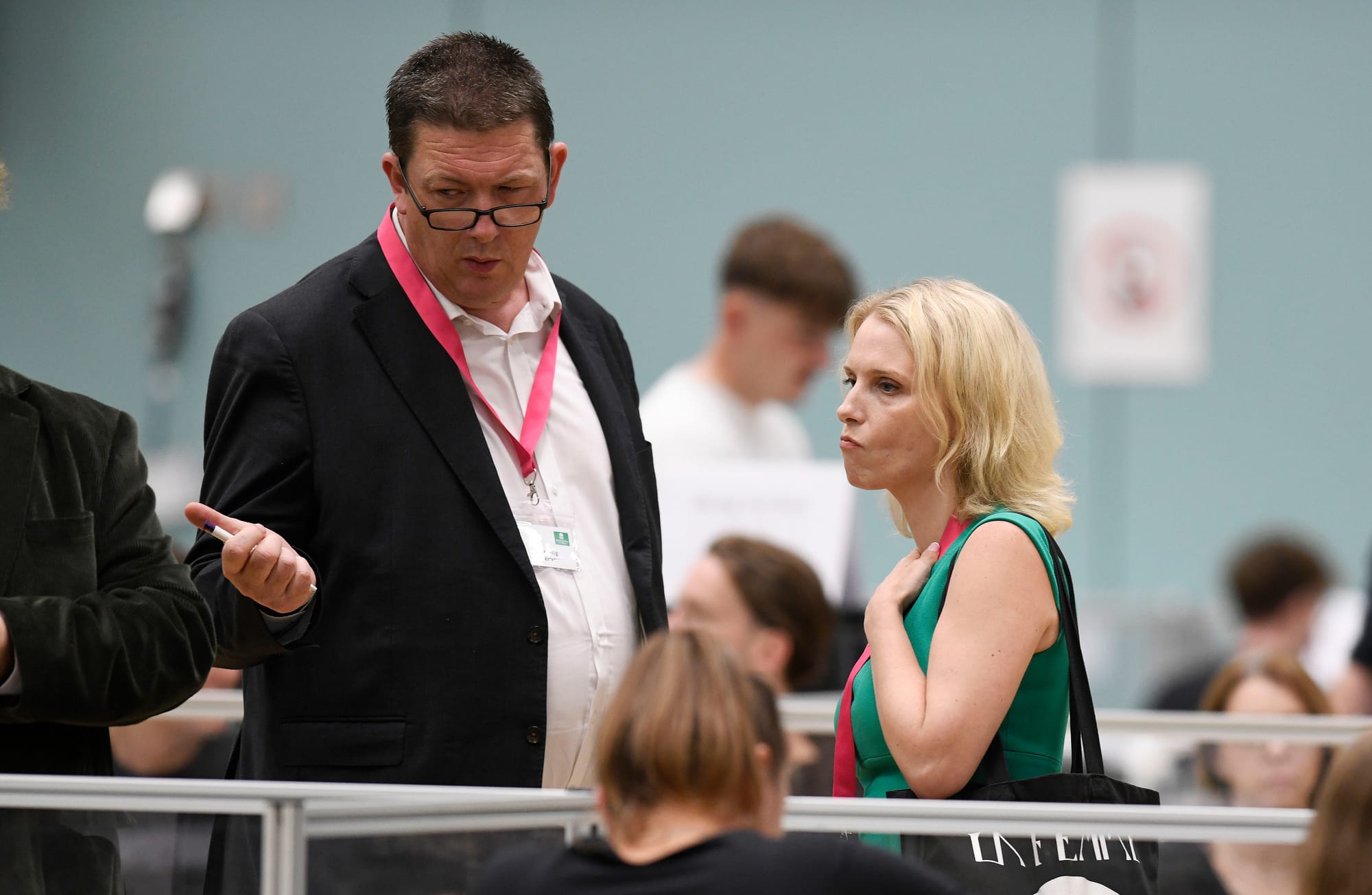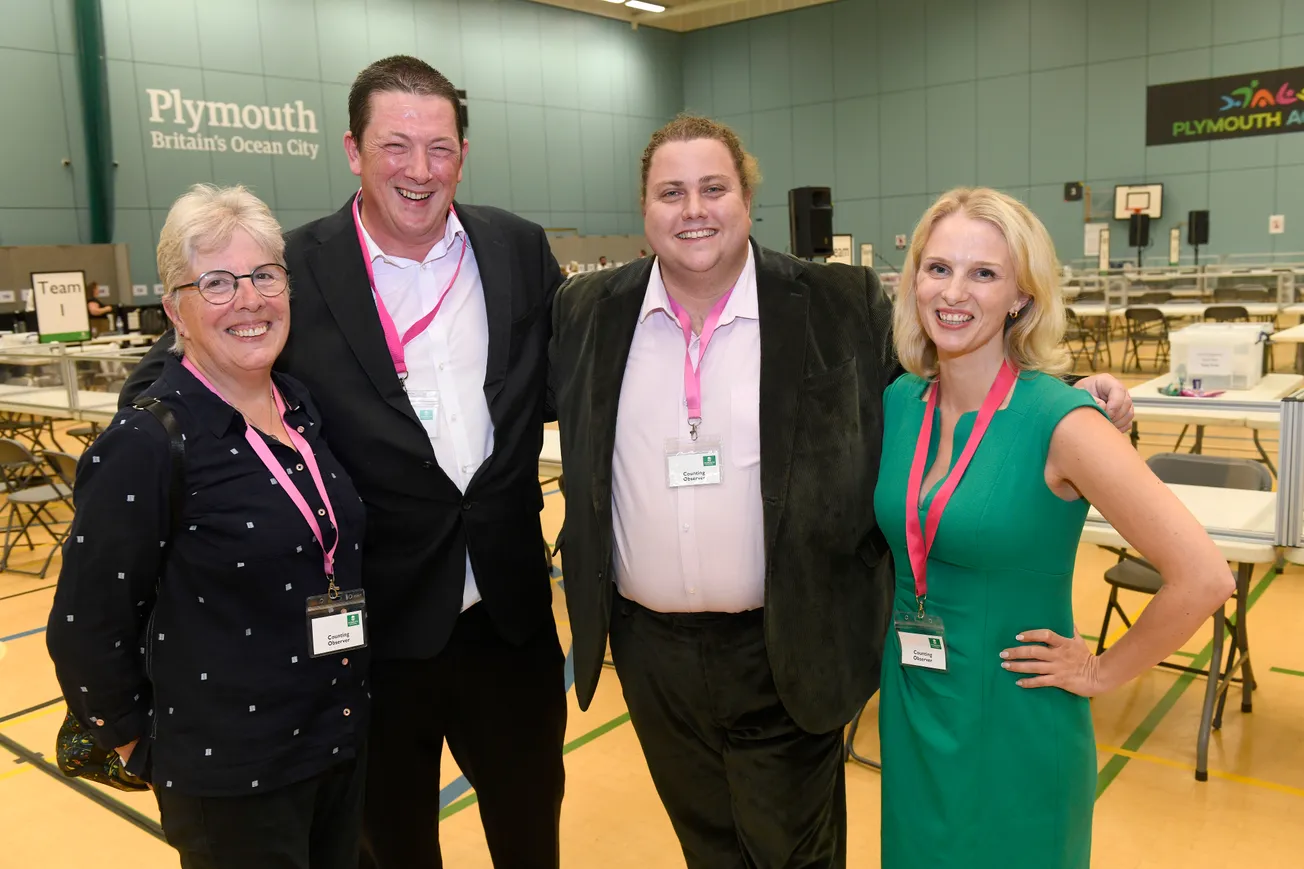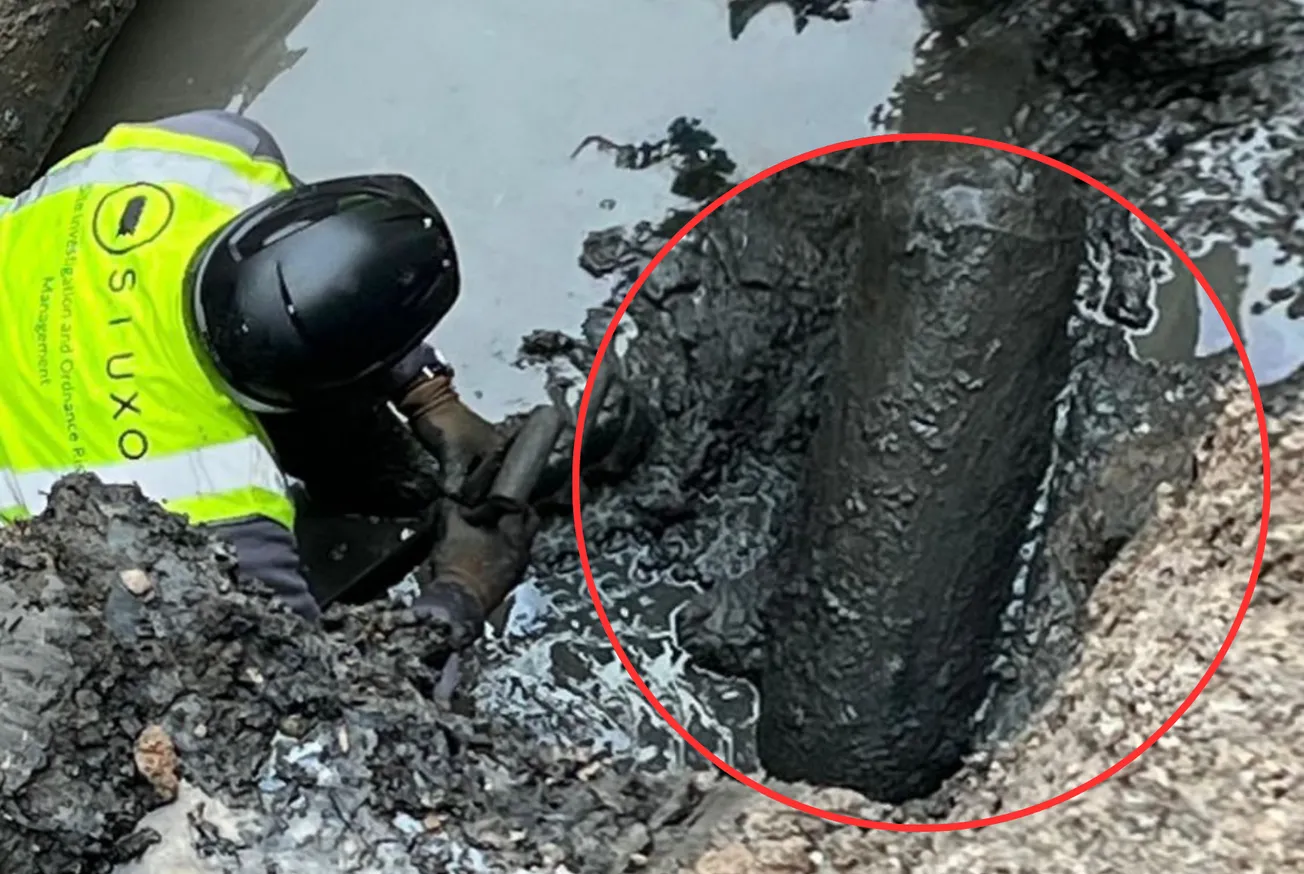Plymouth has voted to reject the idea of a directly elected mayor, delivering a surprise result that has been welcomed by the Plymouth Knows Better campaign and key city figures who argued against the proposed change.
Plymouth Plus provided live updates from the count throughout the evening, reporting from the Life Centre as ballot boxes arrived and the close result became clear.
The city will continue to be governed under Councillor Tudor Evans OBE via the council leader and cabinet model after 19,840 people voted to keep the status quo, while 18,044 backed the shift to a mayoral system. Turnout was just 19.11 percent, meaning fewer than one in five eligible voters took part.

Charlotte Holloway, Labour councillor and spokesperson the anti-mayor campaign, said residents had seen through what she called a “costly, failed experiment” and had sent a clear message that Plymouth did not want or need a directly elected mayor.
Labour MP Luke Pollard, representing Plymouth Sutton and Devonport, also criticised the campaign. He said:
"This referendum was always a dead end, and I’m pleased Plymouth has rejected this costly, failed experiment."
Fred Thomas, Labour MP for Plymouth Moor View, added:
“We now need to move on and put the division behind us. The people of Plymouth have rejected a model that has failed elsewhere. Let’s work together to make our city an even better place to live.”

A total of 15 campaign groups emerged across the city campaigning for the idea of a directly elected leader.
Despite the result, Angus Forbes, the man behind the Mayor for Plymouth campaign, said the vote did not reflect the true level of support for change in the city. He said the referendum had been undermined by what he described as heavy-handed interference from Westminster and Labour officials, claiming many voters believed the referendum had been cancelled.
Despite the defeat, Angus Forbes, the man who led the Mayor for Plymouth campaign, insisted the vote was not a fair reflection of public opinion. He said:
“Democracy has been trampled on. Today’s result is not a true reflection of the need for change that so many Plymothians feel.”
He accused the Government of interfering in the referendum process and claimed voters were misled. He added:
“I call upon the Prime Minister to issue an apology to the citizens of Plymouth for his government’s direct frustration and interference in a live referendum, an action of self-determination which was started well before the general election.”
Mr Forbes also challenged claims about the ongoing cost of a mayoral office. He said:
“Plymouth has been told that the cost of a mayor is £1.5m per annum, when the average city mayoral office cost is £258,000 per annum.”
He added that the opposition campaign had access to the electoral roll while his team did not. He said:
“The local Labour Party used the electoral roll to reach postal voters, when they were expressly told not to by the Head of Electoral Services.”
Although disappointed, Mr Forbes remained hopeful about the movement’s long-term impact. He said:
“I believe this is the start of change for Plymouth and I encourage you to keep working to make Plymouth a great city once again.”
While the referendum result confirms Plymouth will stick with its current governance model, the narrow margin and public debate around the issue suggest the conversation over leadership and change in the city is far from over.
Sign up for free below to get notified with all the latest breaking news from Plymouth Plus.





